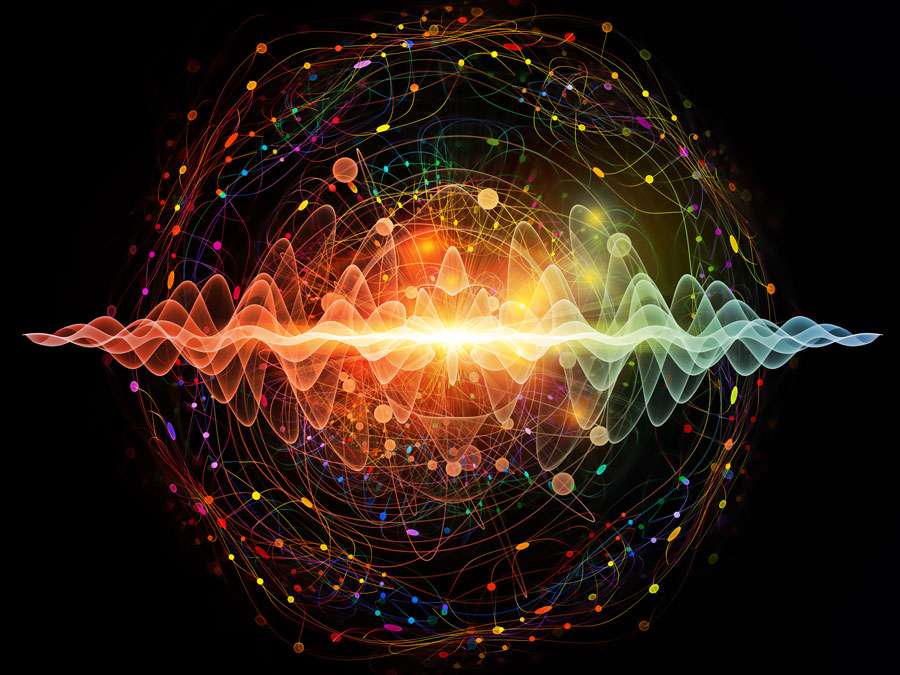|
home | what's new | other sites | contact | about |
||
|
Word Gems exploring self-realization, sacred personhood, and full humanity
Einstein
return to "Einstein" main-page
Does God play dice with the universe after all? Einstein’s debates with Niels Bohr, famously characterized by the former’s comment, “God doesn’t play dice with the universe,” would have far-reaching effects for the most famous scientist in the world. His last major project would be his own "theory of everything." Einstein would devote the final decades of his life to salvaging a core idea that the universe is non-probabilistic in nature. In this he failed. Here is a summary of the issue from a science website, after which I will offer a few comments.
from newatlas.com Regardless of which side of the theoretical divide physicists may sit, the idea that there could be a universal, Grand Unified Theory of Everything remains a captivating prospect, with the result that many proposals have been expounded over the years, and many researchers have spent a great deal of their time and energy pursuing this seductive scientific siren. Even the great Albert Einstein was not immune to its beckoning call. Einstein's Unified Field Theory When Einstein first started his work in the 1930s on a unified field theory, he was ostensibly trying to reconcile his own general theory of relativity (which is, in effect, a field theory on gravitation) with that of Maxwell's unified field theory of electromagnetism. At the time, gravity and electromagnetism were believed to be the only two universal forces known to exist and Einstein's hope was to bring them together as different aspects of the same fundamental field. At first glance, such a theory was a logical progression of his work and would make basic, rational sense of the things that we perceive in the universe. Such a theory would encompass a verifiable set of principles, constants, and equations that would describe the field for all of space and time and how it would behave when its parameters were altered. In effect, it would show how the whole of reality behaves in a rational, predictable manner that could be measured, tested, and verified. not as rational as it seemed However, dig deeper into the events of the time, and the motivation for Einstein to produce such a hypothesis as a purely logical progression of known physics may not have been quite as rational as it seemed. At a conference for the leading physicists of the day in Brussels in 1927, Einstein was involved in an infamous argument with the Danish physicist Niels Bohr about the newly-mooted field of quantum physics. Einstein himself had inadvertently set the wheels in motion for this new area of research when he published his 1905 paper (which won him the Nobel prize in 1921) describing the law of the photoelectric effect, where light was first described as a stream of discrete particles. However, he had not – and would not – leap to the conclusions Bohr and others drew from it. Indeed, Einstein saw all the strange properties associated with quantum theory as proof of its flaws and dismissed it out of hand. Einstein refused to acknowledge a theory of the universe where Heisenberg's uncertainty principle put strict limits on how accurately one could measure the position, velocity, and energy of a particle. For Einstein, God did not "play dice with the universe" – he was a strict believer in the deterministic, reliable, repeatable nature of things in his scientifically-stable world, and random effects played no part in it for him. To this end, Einstein sought to unify the forces at play in the universe from his perspective. And, indeed, from a macroscopic perspective, the forces of electromagnetism and gravity are alike in many ways and could be seen to exhibit properties that suggest they may have the same underlying forces at work. The measurable influence of both, for example, is inversely proportional to the square of the distance between two bodies, and both have a seemingly infinite distance over which that influence is capable of being seen or felt. Einstein felt that he was right in this; he was sure that the universe operated in a rational, persistent, measurable way and he saw it as a way to prove once and for all that he was correct about the elemental deterministic nature of reality, free from quantum spooky actions at a distance. During a particularly rancorous period in 1935, he and a couple of other deterministic physicists published a paper purporting to finally prove the non-existence of quantum theory that was soundly rounded upon and howled down by many in the scientific community. Despite this, Einstein focused on little else for the rest of his life. Einstein's opposition to the weirder aspects of quantum physics was probably part of the motivation for his quest and, ultimately, the reason that his theory never came to fruition as it stuck to macroscopic ways of looking at the universe. Indeed, trying then rejecting one mathematical model after another, Einstein continued to believe that everything – including quantum physics – could be explained when the two forces of electromagnetism and gravity were proven to be two products of the same fundamental force. Einstein died on April 18, 1955. Next to his hospital bed were a dozen pages of paper covered in scores of notes and equations that had been crossed out, corrected, and re-written. To the very end, Einstein had continued to develop and explore the unification of these stubbornly disparate forces, never giving up his belief that his quest may be just one more line of mathematical code away.
Editor’s comments: Is the universe governed by objective, quantifiable Newtonian law or rather by probabilities of the quantum world? There are scientists today who posit that both principles are in play. I side with this view, as there is very strong evidence to support it. a structured randomness Yes, Bohr was right, probabilities do superintend, but it’s a structured randomness leading to overarching, predictable outcomes. And so, in a larger sense, Einstein was correct after all, but not via Newtonian avenue. rational versus weird The article above suggests that Newtonian rule-set is “rational” with the implication that quantum physics produces irrational results, that it’s “weird science,” that not only can it not be understood, but that it will never be understood. This is gross error and, actually, a form of propaganda by the materialistic science camp. Quantum results are called “weird” only by those who refuse to give up their central metaparadigm, that matter, as opposed to consciousness, is the primary undergirding of the universe. The Double-Slit experiment encapsulates the essential mystery of the quantum world; indeed, as some say, of all science. As we unravel the Double-Slit, unfurling its counter-intuitive implications, clarity, unity, and harmony come to the fore, as much as with Newtonian physics. To better understand these issues, we’ll need to survey a few videos by physicist Tom Campbell. See the “Double-Slit” and “Theory Of Everything” pages.
|
||
|
|

